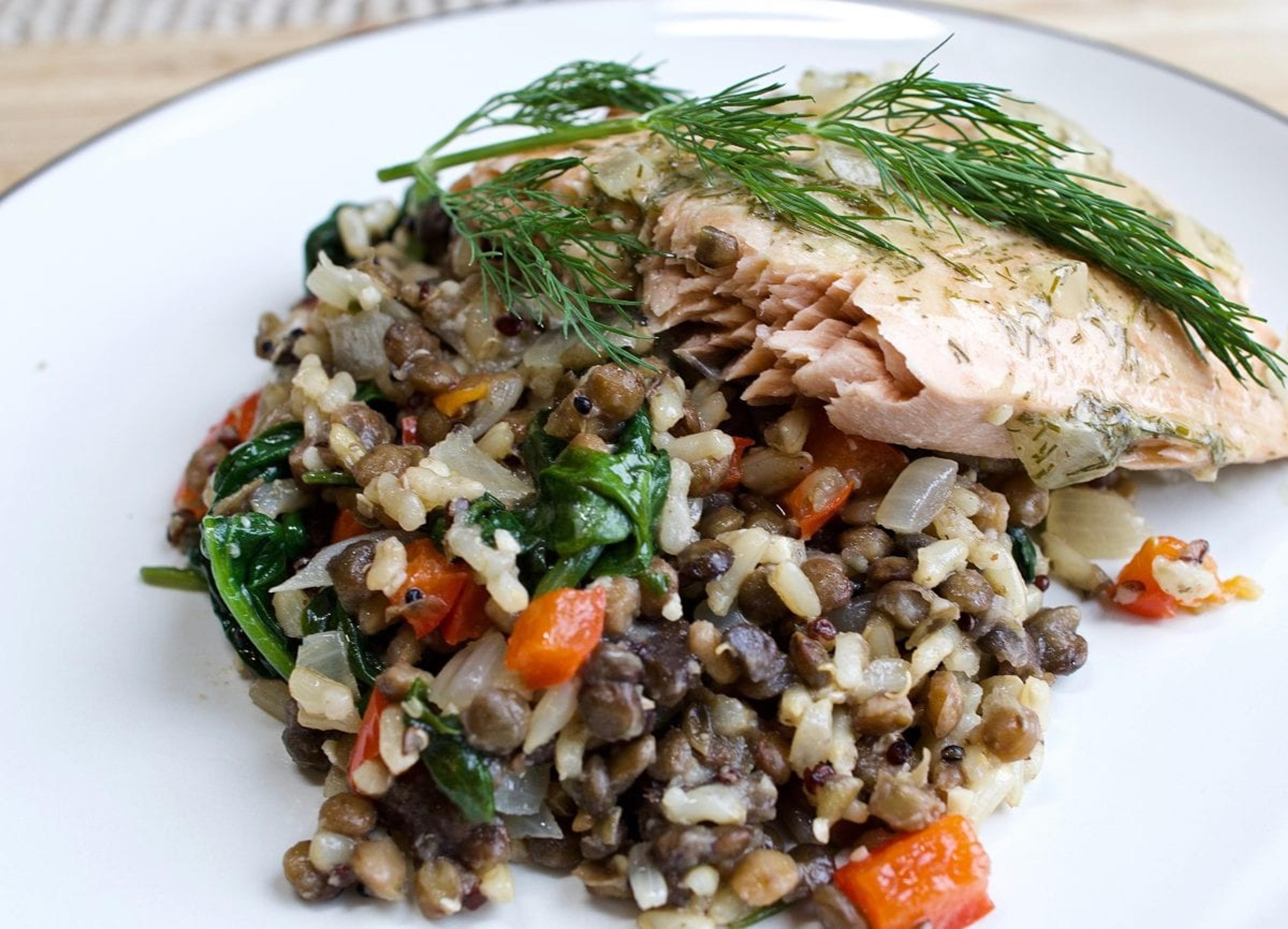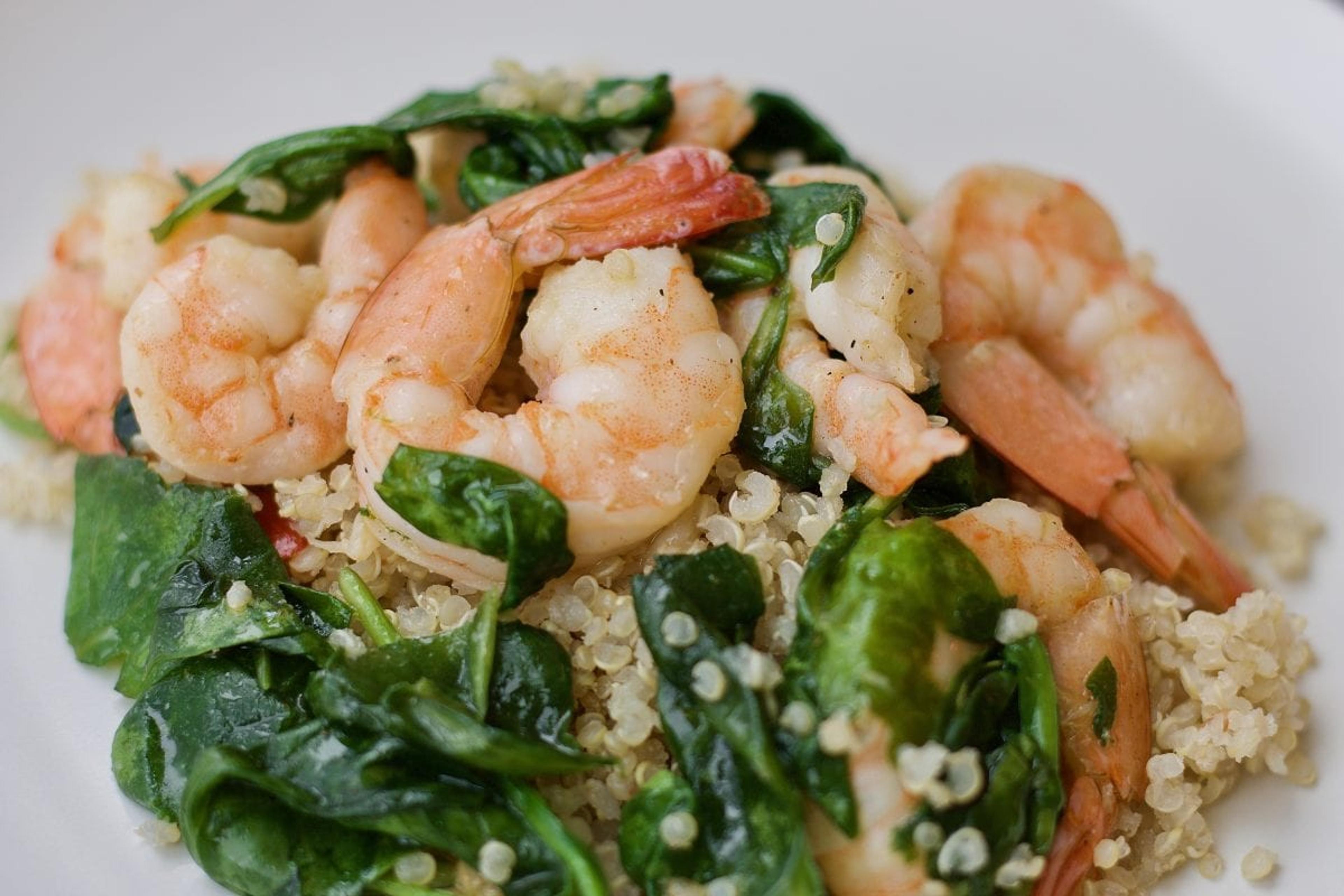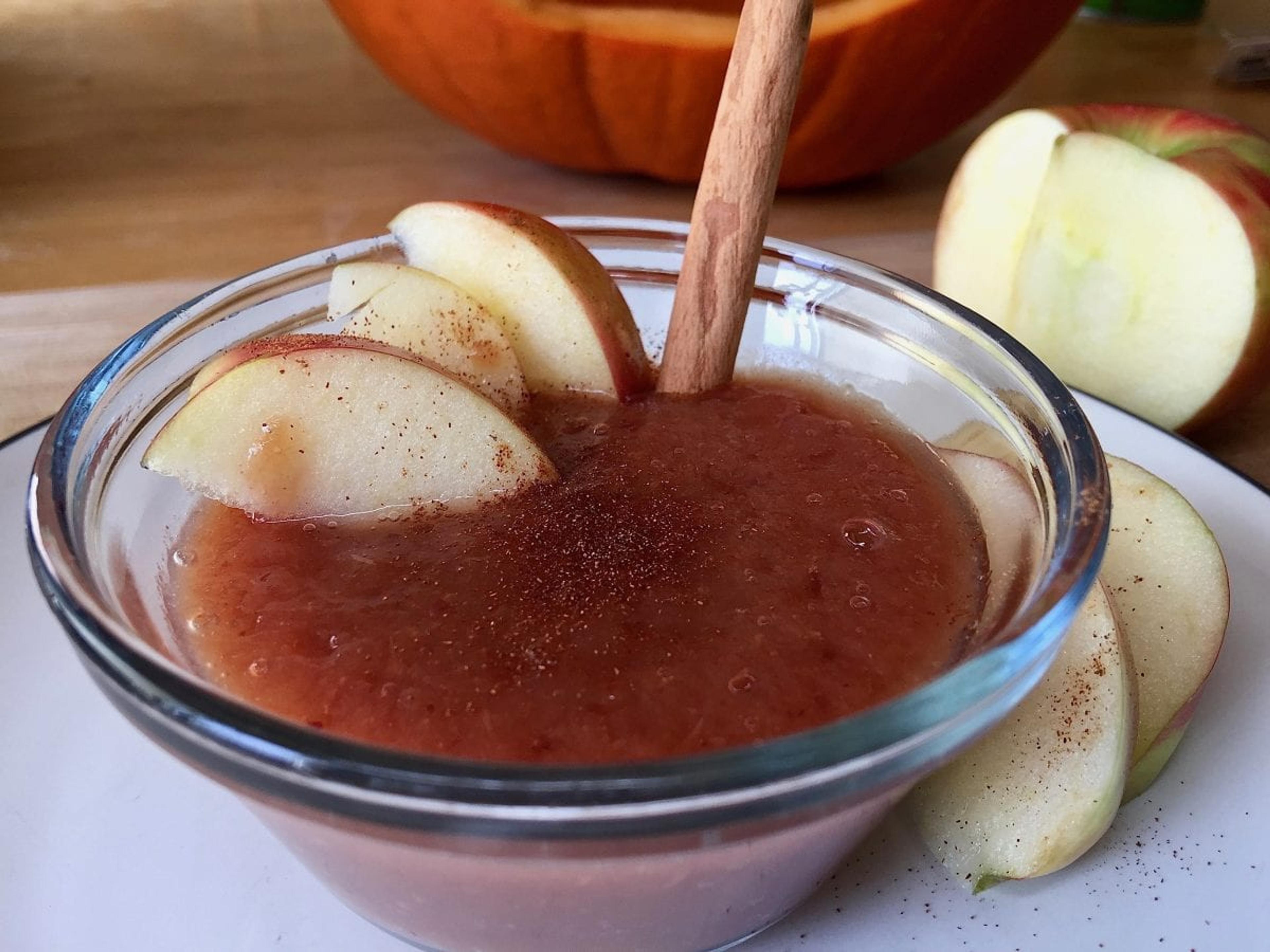Cancer-Fighting Recipe Roundup

Angelina Truchan
| 2 min read

Eating a diet rich in a variety of fruits and vegetables every day, while limiting processed and high-fat foods is a good way to avoid an increased chance of developing cancer. It is recommended to skip red meat as part of an anti-cancer diet and replace that with fish, which is high in omega-3 fatty acids.
If you have unfortunately already been diagnosed with cancer, it is important to eat well during treatment to help your body stay strong, rebuild tissue damaged by treatment, deal with side effects and fight off infections. Oftentimes during treatment, a patient’s mouth can become very dry and sore. Softer foods, like applesauce or mashed potatoes, can help you combat this problem.
Check out some of our favorite recipes below to include in your anti-cancer diet plan.

This awesome salmon dish is a perfect meal to make if you are trying to reduce your risk of cancer or support a loved one fighting the disease. Omega-3 fatty acids are healthy fats that help to reduce inflammation that may contribute to breast cancer.

These raspberry yogurt muffins are packed with whole grains, healthy fats and delicious flavor, making them the perfect breakfast to start the day or even a great dish to take to friends and family who are bravely fighting breast cancer.

This recipe includes high levels of carotenoids (vitamin A) from the spinach, anti-inflammatory properties from the shrimp and high fiber intake from your chosen whole grain can all help prevent the risk of breast cancer.

An increase in fiber intake can help prevent breast cancer. Apples and plums are both high in dietary fiber, making this a great recipe to try if you have a higher risk of developing cancer.





